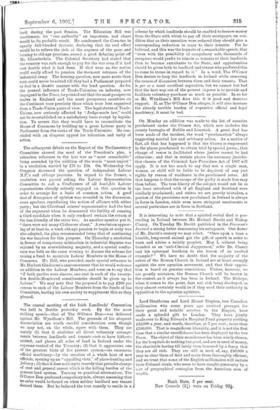The subsequent debate on the Report of the Parliamentary Committee
showed the need of the President's plea, a colourless reference to the late war as " most remarkable" being amended by the addition of the words "most unjust" in a resolution carried by 176 to 134. On Wednesday the Congress discussed the question of independent Labour M.P.'s and old-age pensions. In regard to the former, a resolution was passed asking the Labour Representation Committee to call a Conference of all bond-fide Labour organisations already actively engaged on this question in order to arrange for a basis of common action. A good deal of divergence of opinion was revealed in the discussion, some speakers repudiating the notion of alliance with either party; but the Cleveland miners' representative had the best of the argument when he denounced the futility of running a third candidate when it only rendered certain the return of the less friendly of the other two. As another speaker put it, "there were not many Clitheroes about." A resolution approv- ing of at least 5s. a week old-age pension to begin at sixty was also adopted, the plan recommended being that of continuing the war taxation for this purpose. On Thursday a resolution in favour of compulsory arbitration in industrial disputes was rejected by an overwhelming majority, and a special confer- ence was held on the same evening to discuss the scheme for raising a fund to maintain Labour Members in the House of Commons. Mr. Bell, who presided, made special reference to Mr. Herbert Gladstone's announcement that he would welcome an addition to the Labour Members, and went on to say that " if both parties were sincere, one seat in each of the twenty- five double-Membered constituencies should be given up to Labour." We may note that the proposal is to pay £200 per annum to each of the Labour Members from the funds of the Committee, leaving his own society to supplement this as they pleased.






































 Previous page
Previous page